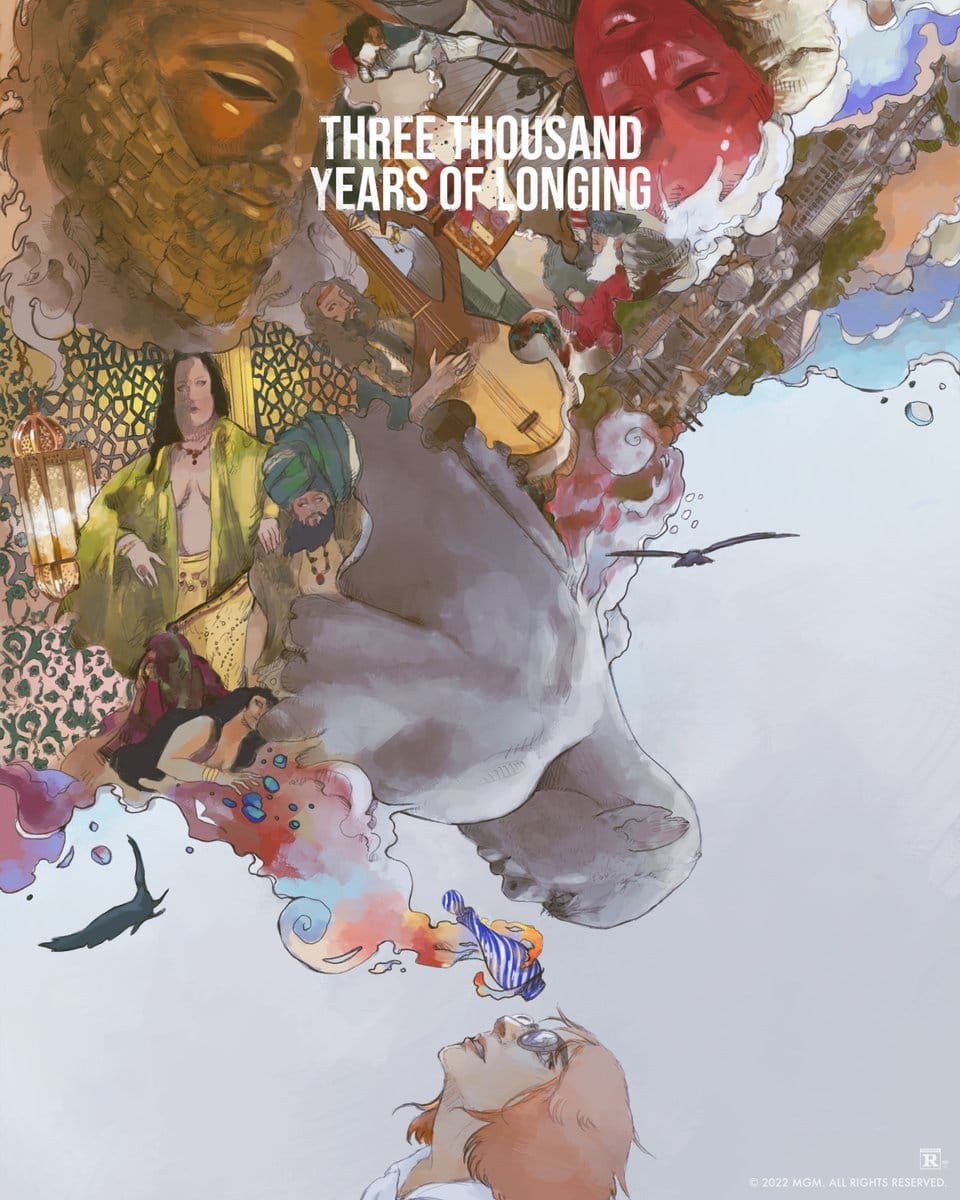Three Thousand Years of Longing
What does one do with three wishes?

While attending a conference in Istanbul, Dr. Alithea Binnie encounters a djinn who offers her three wishes in exchange for his freedom. This presents two problems: first, she doubts that he's even real in the first place, and second, because she's a scholar of story and mythology, she knows all about the cautionary tales of wishes gone wrong. The duo spend the night debating the offer, with the djinn explaining his situation by telling her fantastical stories of his past, all while Dr. Binnie mulls over making a wish that will surprise them both…
If ever asked, I’ve always attributed the roots of my tastes to the influences of “Stan, 3 Georges, and a King.”
Stan Lee and Stephen King, of course, to clarify, with the 3 Georges being Lucas, Miller, and Romero. So, having said that, it shouldn’t be a suprise to learn that I’ve been waiting for Miller’s Three Thousand Years Of Longing, a modern day fairytale about a scientist, a djinn, and the fabled 3 wishes, ever since I first heard hints of the project’s development.
Ultimately, Three Thousand Years of Longing is a film about the magic of love, and how, in the end, everything has a season. As all wish-fulfillment narratives involving genies have shown, the three wishes are always a trap, either due to the stupidity and greed of the wisher, or the fact that genies are often portrayed as notorious tricksters. In this film, like a lot of latter day wish-fulfillment narratives that involve genies, the wisher is well aware of all the pitfalls that come with the offer of these wishes, so the lion’s share of our time here is spent with the scientist (Tilda Swinton) as she carefully interrogates the djinn (Idris Elba) about his intentions and his history.
This is the vehicle that takes us whooshing away from a bland hotel room and into a wonderous distant past of magics and monsters and strange kingdoms. The djinn’s tales are exciting and beautiful, sumptuous, as some may say, filled with violence and sex and extravagance that take place in these alien fantasy worlds of long ago, all of it suffused with golden motes of magic.
All of this is wonderful. It’s incredibly imaginative and it’s incredible to look at. I would love to see George Miller return to these kind of long ago set fantasies and really dig in. I had to pasue and rewind the court scenes just to take in all of the various fantasy elements. It’s fantastic.
But… the film stumbles in the last third.
There’s a feeling of timidity that becomes more apparent the longer the film goes on, a fear of actually using those wishes both in the text and in the meta-text, that after a drawn-out ending that mostly felt unsure of what to do with itself, I was left with just the tattered wisps of the promise of extraordinary experiences that the film had made in the beginning. I’d love to revisit the first parts of this film again, but the promise of the waiting drudgery of the last part is too discouraging to bother.
The orientalism is little off-putting too.
This is something that is perhaps somewhat unavoidable whenever a “Western” culture mines the stories of an “Eastern” culture to twist into their own, and I don’t believe that Miller was being deliberately insensitive either, but still… it’s there. There’s an obvious ignorance to the fact that the beliefs regarding djinn are deeply integrated in Muslim culture and religion, and the use of them in popular fiction can be problematic at best, and offensive at worst, especially when they’re so casually reduced to silly folklore, as it basically always is in “Western” culture. There’s some awkward slave imagery throughout too, something that is also perhaps unavoidable given the subject, but still… watching a Black Djinn battle a white woman over the validity and accuracy of his own narrative is made all the worse because it feels like the film doesn’t even notice this at all, just… zero recognition, which is… a little shitty. And again, I’d say it’s more an “unfortunate” result then it is an “actively toxic” one, which I feel is an important distinction, but also that’s me, others may feel differently.
Anyway, after the practical effect showcase and masterpiece that was “Fury Road,” it’s cool to see Miller show off his mastery of CGI too. Three Thousand Years of Longing really is a gorgeous film, but it’s also one that falls short of its potential, mostly by tripping over it’s own feet.
Ah well… C’est La vie.
